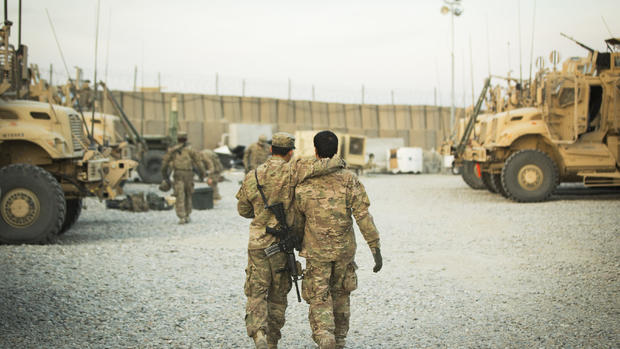Cautious move toward peace deal with Taliban
KABUL -- The first round of official talks between Afghan government negotiators and representatives of the Taliban in Afghanistan concluded Wednesday in Pakistan with both sides agreeing to meet again -- a furtive first public step toward brokering a political deal for peace in the war-torn nation.
Afghanistan's Ministry of Foreign Affairs welcomed the "Inter-Afghan Peace Negotiations" in a statement Wednesday. The talks represent the first confirmed dialogue with the Taliban since the hardline group's rule of Afghanistan collapsed in 2001 with the U.S.-led military invasion.
"The first meeting of formal peace negotiations took place last night between official delegations of the High Peace Council of Afghanistan and the Afghan Taliban movement in Mari City, Pakistan. The two sides will hold their second meeting as part of the process in the days after the holy month of Ramadan," the ministry statement said.
Afghan Deputy Foreign Minister Hekmat Karzai, cousin of former Afghan President Hamid Karzai, led the four member Afghan government delegation which spoke face-to-face with three Taliban representatives in the Pakistani capital of Islamabad. Their goal is to lay the groundwork for formal peace negotiations, according to a senior Afghan official.
The talks, brokered by the Pakistani government, came after months of intense efforts by Afghan President Ashraf Ghani, who believes the Afghan-Pakistani relationship struggled through an "undeclared state of war" during Karzai's tenure. Representatives of the United States and China also attended the meeting, as observers.
"As part of the commitment to facilitate an Afghan-led and Afghan-owned peace and reconciliation process, a meeting was hosted by Pakistan between the Afghan Government and Tehreek-e-Taliban Afghanistan representatives," a statement from the Pakistani Foreign Ministry confirmed.
President Ghani, speaking to journalists, members of civil society and analysts at the presidential palace on Tuesday, said his government would "always talk from a position of strength, and will also make sure that women are fully represented in dialogues."
The United States, which fought the Taliban insurgency for more than a decade and still has about 10,000 troops in Afghanistan in a training capacity, welcomed the talks and acknowledged the role Pakistan played in facilitating the negotiations.
"This is an important step in advancing prospects for a credible peace," White House Press Secretary Josh Earnest, told reporters, lauding the new Afghan government's "prioritization of peace and reconciliation efforts with the Taliban."
CBS News could not reach Taliban spokesman Zabihullah Mujahid for comment on the negotiations, but he said in a statement released to media that members of the Taliban's political office had authorization to hold -- and halt -- any talks, in line with "Islamic principles and national interests."
The Taliban briefly opened an official political office in Doha in 2013. But when they raised their flag in a televised inauguration ceremony it enraged then-President Karzai and, as a result, the office was quickly closed.
